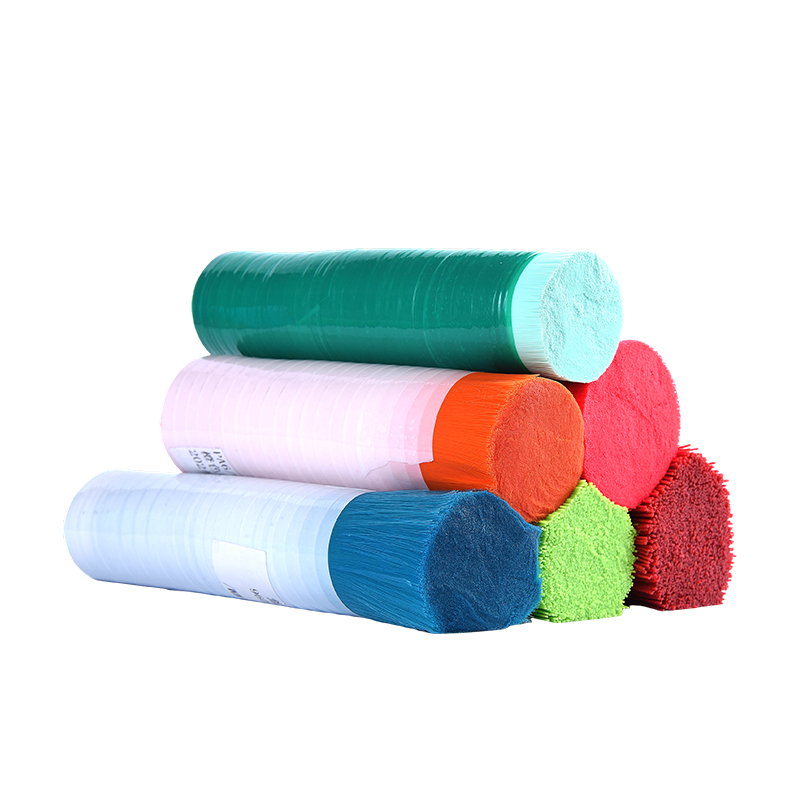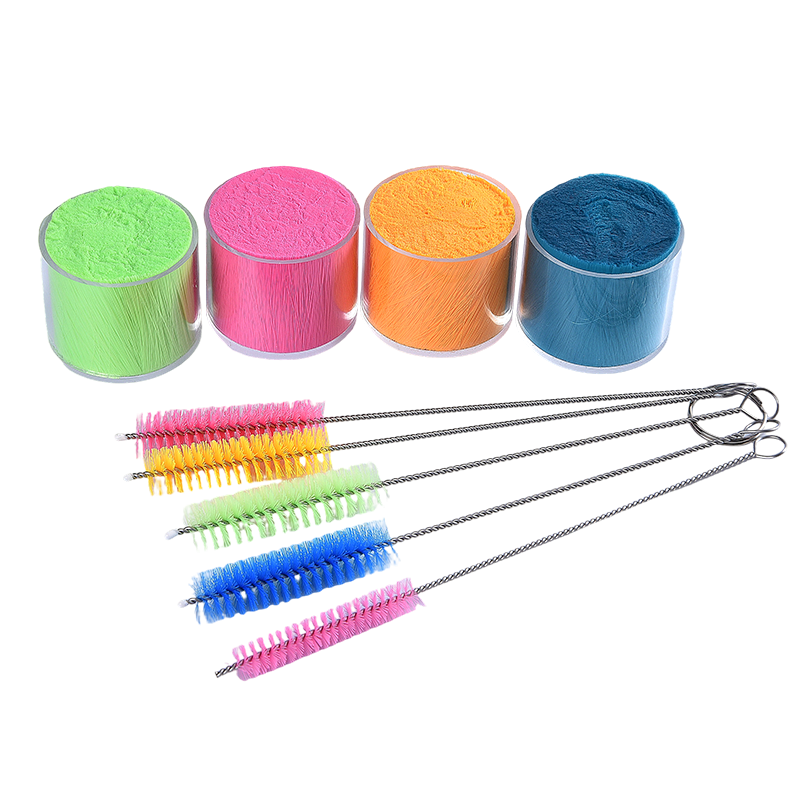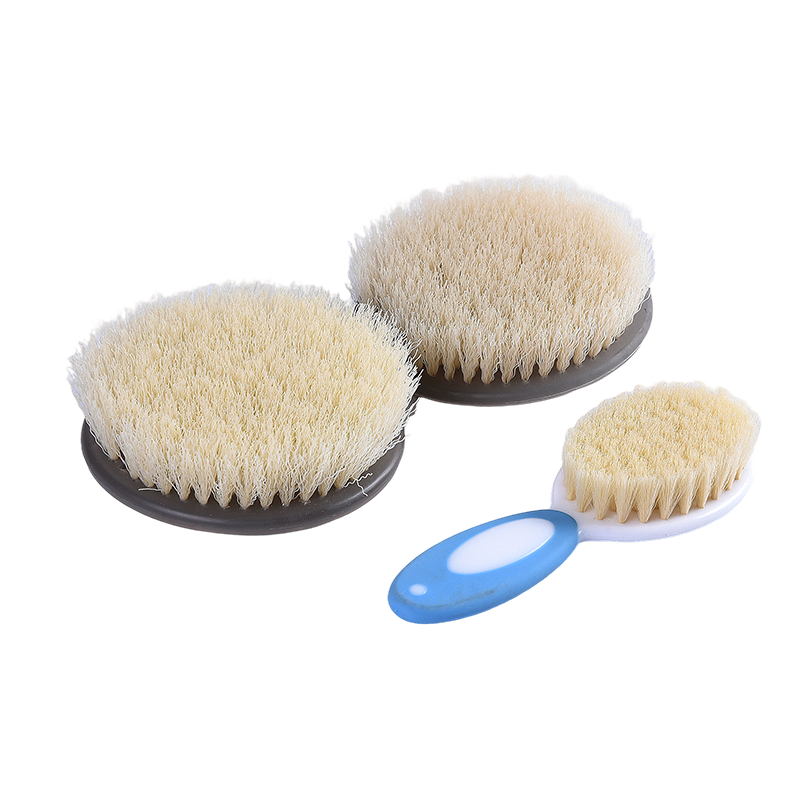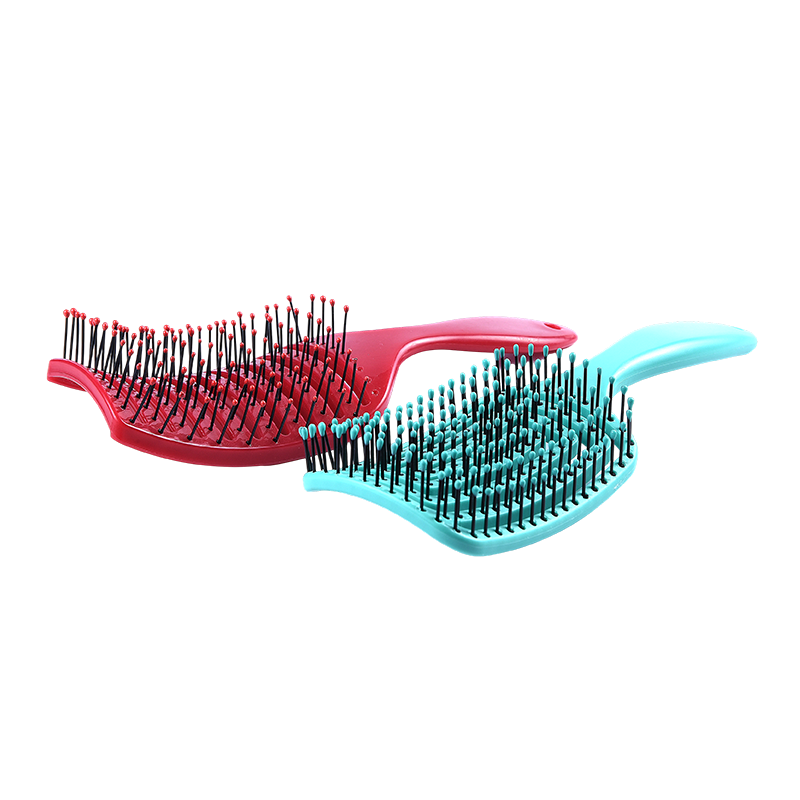What Exactly Are Nylon PBT Brush Filaments?
Nylon PBT brush filaments are a type of composite synthetic bristle, formed by blending nylon (a polyamide material) and PBT (polybutylene terephthalate, a thermoplastic polyester). Unlike single-material filaments, this blend combines the advantages of both components: nylon contributes flexibility and tensile strength, while PBT enhances rigidity, wear resistance, and resistance to high temperatures and chemicals. The filaments can be processed into different diameters (usually 0.05-1.5mm) and lengths based on application needs, and they retain stable performance even in harsh environments—such as exposure to cleaning agents or frequent friction.
What Key Properties Make Nylon PBT Brush Filaments Stand Out?
Their popularity in brush manufacturing stems from four core properties. First, wear resistance: compared to pure nylon filaments, Nylon PBT filaments have a 30%-50% longer service life under repeated friction, making them suitable for long-term use in industrial scrub brushes or daily-use toothbrushes. Second, shape retention: they do not easily deform or bend after being pressed or soaked in water, which is critical for brushes that need to maintain consistent bristle spacing (like hairbrushes or floor scrub brushes). Third, chemical resistance: they are not corroded by common acidic or alkaline cleaning solutions, so they can be safely used in kitchen cleaning brushes or industrial degreasing brushes. Fourth, versatility in customization: they can be dyed into various colors without fading, and their stiffness can be adjusted by changing the nylon-PBT ratio—for example, softer filaments for baby hairbrushes and stiffer ones for metal surface polishing brushes.
Which Types of Brushes Rely Heavily on Nylon PBT Filaments?
They are widely used across daily life and industrial sectors. In daily-use brushes: toothbrushes use ultra-fine Nylon PBT filaments (0.08-0.12mm) to clean teeth without damaging gum tissue; hairbrushes use medium-stiffness filaments to detangle hair while reducing breakage; and kitchen scrub brushes use thick, wear-resistant filaments to remove stubborn oil stains. In industrial brushes: metal processing brushes use high-rigidity filaments to polish and deburr metal surfaces; textile industry brushes use anti-static treated filaments to clean fabric lint; and automotive cleaning brushes use water-resistant filaments to scrub car bodies without scratching the paint.
Why Do Brush Manufacturers Prefer Nylon PBT Filaments Over Other Materials?
For manufacturers, Nylon PBT filaments balance performance and cost-effectiveness. Compared to expensive materials like stainless steel filaments, they are lighter, cheaper, and do not rust—lowering production and transportation costs. Compared to pure PBT filaments, they have better flexibility, reducing the risk of bristle breakage during processing and use (which cuts product defect rates). Additionally, their stable physical properties mean manufacturers do not need to adjust production processes frequently when switching between different brush types, improving production efficiency. As consumer demand for durable, multi-functional brushes grows, Nylon PBT filaments have become a "go-to" material in the industry.
Recommended Products
Products provided by famous enterprises are deeply trusted by users.


 English
English русский
русский Türk
Türk










